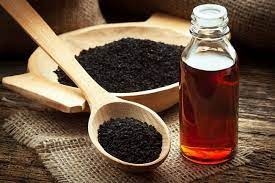
Breaking News
 The Epstein Files: A Peek Behind the Dark Curtain, Pt. 1
The Epstein Files: A Peek Behind the Dark Curtain, Pt. 1
 Make Your Own Herbal Tea Blends and Save $$$
Make Your Own Herbal Tea Blends and Save $$$
 Prince Andrews Arrested, Trump Releasing Alien Files, Supreme Court Tariff Decision...
Prince Andrews Arrested, Trump Releasing Alien Files, Supreme Court Tariff Decision...
Top Tech News
 New Spray-on Powder Instantly Seals Life-Threatening Wounds in Battle or During Disasters
New Spray-on Powder Instantly Seals Life-Threatening Wounds in Battle or During Disasters
 AI-enhanced stethoscope excels at listening to our hearts
AI-enhanced stethoscope excels at listening to our hearts
 Flame-treated sunscreen keeps the zinc but cuts the smeary white look
Flame-treated sunscreen keeps the zinc but cuts the smeary white look
 Display hub adds three more screens powered through single USB port
Display hub adds three more screens powered through single USB port
 We Finally Know How Fast The Tesla Semi Will Charge: Very, Very Fast
We Finally Know How Fast The Tesla Semi Will Charge: Very, Very Fast
 Drone-launching underwater drone hitches a ride on ship and sub hulls
Drone-launching underwater drone hitches a ride on ship and sub hulls
 Humanoid Robots Get "Brains" As Dual-Use Fears Mount
Humanoid Robots Get "Brains" As Dual-Use Fears Mount
 SpaceX Authorized to Increase High Speed Internet Download Speeds 5X Through 2026
SpaceX Authorized to Increase High Speed Internet Download Speeds 5X Through 2026
 Space AI is the Key to the Technological Singularity
Space AI is the Key to the Technological Singularity
 Velocitor X-1 eVTOL could be beating the traffic in just a year
Velocitor X-1 eVTOL could be beating the traffic in just a year
Nigella sativa (black seed) prevents covid-induced vascular damage, ...

(Natural News) New research published in the journal Vascular Pharmacology shows that Nigella sativa, also known as black seed or black cumin, binds to ACE2 in the lungs, effectively stopping the Wuhan coronavirus (Covid-19) from inducing inflammation and vascular damage.
Researchers out of India investigated the effects of nigellidine, an indazole alkaloid of black seed, using molecular docking for binding to different angiotensin-binding proteins, as well as the Chinese Virus spike glycoprotein. They found that nigellidine "strongly binds" to the Chinese Virus spike protein at what is known as the hinge region or active site opening, which may in turn hamper its binding to the nCoV2-ACE2 surface.
"Nigellidine effectively binds in the Angiotensin-II binding site / entry pocket," the study explains. "Nigellidine showed strong binding to mono / multi-meric ACE1."
This process of ACE blocking could, the study goes on to suggest, restore angiotensin levels and restrict vasoturbulence in Chinese Virus patients, while the receptor blocking could help to stop resulting inflammation and vascular impairment.
"Nigellidine may slow down the vaso-fluctuations due to Angiotensin deregulations in Covid patients," the paper further explains.
"Angiotensin II-ACE2 binding (ACE-value -294.81) is more favorable than nigellidine-ACE2. Conversely, nigellidine-ACE1 binding-energy / Ki is lower than nigellidine-ACE2 values indicating a balanced-state between constriction-dilatation."
Nigellidine also binds to the viral spike proteins, which when taken by Chinese Virus patients, and especially those who fall in the elderly category, could greatly reduce their risk of suffering complications or death

 Free Grocery Stores in NYC?
Free Grocery Stores in NYC? 

